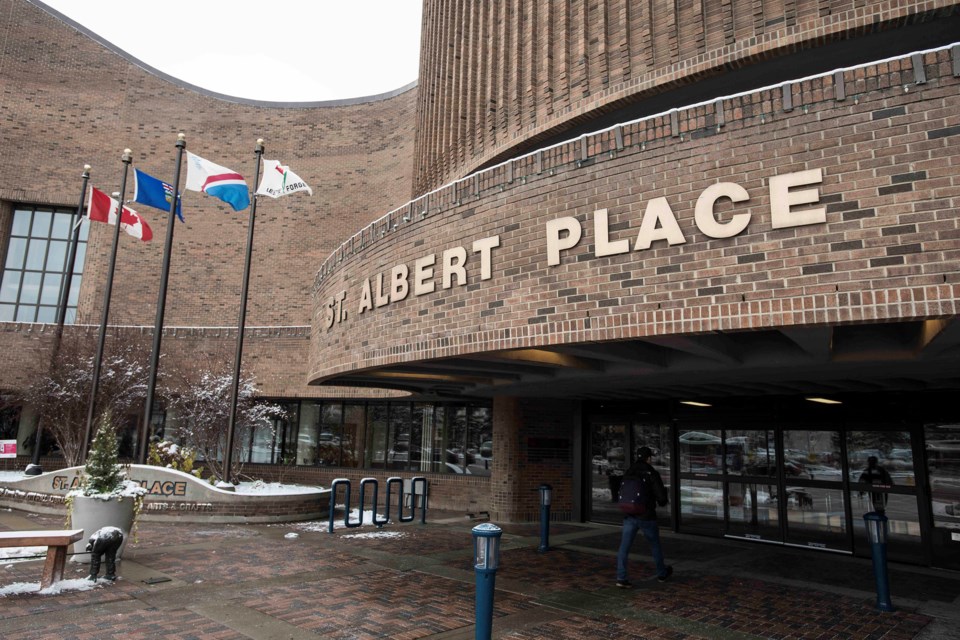St. Albert will spend up to $1 million next year on technology for piloting gasification of garbage into useful energy, after council approved the city’s waste-to-energy project on Monday.
Projected total capital costs are $4 million, and St. Albert will rely on partnerships and grants to cover the remaining balance. That figure will cover the cost of acquiring technology, site grading and construction.
When asked about operating costs, the city did not respond before print deadline.
Instead of dumping garbage in the landfill, the city will experiment with various “menus” of solid waste and organics to determine the best mix for gasification.
The intent of the pilot is to gather in-house data on waste-to-energy the city could use as a guide for possible expansion in the future, St. Albert director of utilities and environment Kate Polkovsky said.
“Testing a technology with viable waste streams that is prevalent in solid waste management and owning the data output to provide the best space for future decision-making is a key component of the program,” she said.
The pilot was unanimously supported by council.
During discussions Coun. Ray Watkins said the technology seems “unproven.”
“It seems like it’s unproven, because we’re doing a lot of testing here. If it was proven, you’d think they’d would burn everything under the sun in this,” he said.
Polkovsky noted there are gasifiers all over the world, but typically at larger scales. St. Albert’s pilot is really about getting “raw data.”
Worst case scenario, the technology is not viable and St. Albert along with its partners dispose of a $4-million asset, Polkovsky said.
When Watkins asked whether the city’s investment could be recovered if the pilot is not successful, director of legal and legislative services David Leflar said St. Albert would work towards agreements with partners that would “leave us in the best possible position.”
Chief administrative officer Kevin Scoble said $1 million would be the “hard stop” capital cost to the city.
“We kind of figured a million dollars is a hard stop on this; if we can’t do it for that, then that’s it,” he said. Scoble later said the city would not proceed unless it can secure partners.
A successful waste-to-energy facility could reduce St. Albert’s climate change impact by gasifying contaminated plastics that would eventually become toxic sitting in a landfill, and organics that would otherwise breakdown into methane, Scoble said.
“Methane is 21 times worse for climate change than converting that to CO2 (carbon dioxide) in gasification,” he said. “You’re actually reducing the climate change impacts with this technology and then you’re dealing with these toxic intermediates that would form over time.”
Later, Scoble said there could also be opportunity to generate carbon credits, which the city could hold to become carbon neutral, or sell them.
Coun. Wes Brodhead made the motion to approve the pilot project, saying the project would assist St. Albert in becoming “an even greener community.”
“We’ve mitigated the risk as best as we can, and certainly appreciate what Mr. Scoble and Ms. Polkovsky have done in terms of quantifying this so we can move forward with confidence in executing this,” he said.
Coun. Sheena Hughes said she had a “real challenge” in feeling comfortable investing in the pilot, but it has helped to hear staff talk about minimizing risk by having other investors at the table.
“While this does seem like a lot of money – it is a lot of money – it has been put forward as a calculated risk,” she said. “It’s also being brought forward in a way to test it, to minimize the costs to our residents.”
Next steps include procuring the technology, working toward grant opportunities and solidifying partnerships. Polkovsky said there are some groups already interested in working with St. Albert on its pilot, which is set to begin once the snow melts.
Funds for the pilot project will come out of St. Albert’s stabilization reserve, which currently sits at $3.17 million.
Waste-to-energy is one of the possible new lines of service being floated as options to be delivered by a new municipal utility corporation. A public hearing will be held on the city's proposed utility corporation on Dec. 2.




